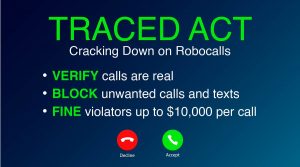If you’ve watched any of the Democratic presidential debates, you might have heard candidate and entrepreneur Andrew Yang – you know, the guy with the $1,000 per month guaranteed income plan – talk about something called the “Fourth Industrial Revolution.” This is a recognition that technology is imploding and changing everything about our lives.
 In describing the ways social media and technology have redefined communication, in 2009 journalist Graeme Wood said that “Change has never happened this fast before, and it will never be this slow again.”
In describing the ways social media and technology have redefined communication, in 2009 journalist Graeme Wood said that “Change has never happened this fast before, and it will never be this slow again.”
Klaus Schwab, founder of the World Economic Forum, coined the phrase “fourth industrial revolution” in his 2016 best seller. This is techie-speak for disruptive technologies and trends like robotics, artificial intelligence, virtual reality and the Internet of Things – i.e. everyday devices like doorbells and thermostats that you can control remotely – that are changing how we live and work. This Fourth Industrial Revolution is bringing together digital, physical and biological systems. It will open up our minds to all kinds of new things: Mobile supercomputing; Artificially-intelligent robots; Self-driving cars; Neuro-technological brain enhancements; Genetic editing. We can see the evidence of these revolutionary changes all around us – and it’s happening faster and faster.
 Chicago Business Attorney Blog
Chicago Business Attorney Blog










